- Author Jason Gerald [email protected].
- Public 2024-01-15 08:07.
- Last modified 2025-01-23 12:04.
This wikiHow teaches you how to remove a password from a protected Excel spreadsheet, as well as how to find out the password for an encrypted Excel file. Keep in mind that while the process of removing passwords from spreadsheets locked for editing is fairly straightforward, you cannot remove password protection from encrypted files and will need to use a paid program to guess the password. This process can take weeks (or longer) to complete.
Step
Method 1 of 2: Removing Password Protection from Sheets
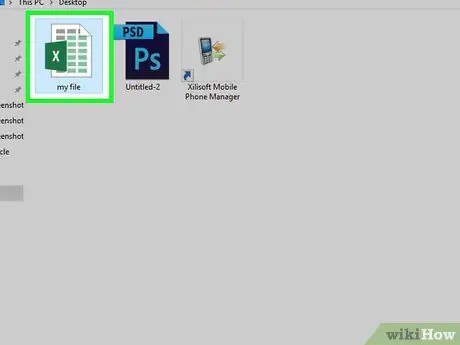
Step 1. Understand the situations that allow you to delete passwords
If only the Excel sheet is protected or you can open the Excel file and view its contents, but cannot edit it, this method can be used to remove the password. This process can be followed on Windows and Mac computers.
If the Excel file is encrypted, you cannot use this method to remove the password
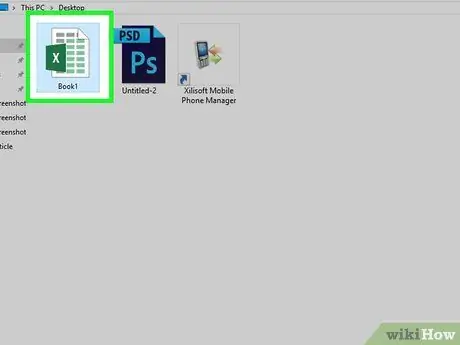
Step 2. Check if the Excel file is encrypted
The easiest way to do this is to double-click the file. If the file opens normally after double-clicking it, only the spreadsheet is protected (the file itself is not protected).
- You can see a pop-up warning window when you want to edit an Excel spreadsheet.
- If you are immediately prompted for your password after double-clicking the file, the file is encrypted and you cannot use this method to open it. Try the next method.
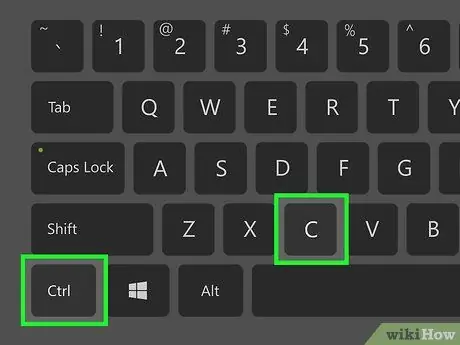
Step 3. Make a copy of the protected spreadsheet
Click the Excel file containing the spreadsheet with the protection you want to remove, then press Ctrl+C (Windows) or Command+C (Mac) and paste it in any directory by pressing Ctrl+V (Windows) or Command+V (Mac).
This step is important to follow in case you accidentally damage the original version of the file during the password removal process
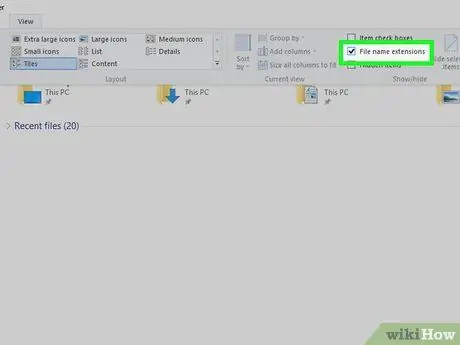
Step 4. Enable file extensions
Skip this step if you are using a Mac computer. If you are using a Windows computer, make sure that you can view and rename the file extensions by following these steps:
-
open

File_Explorer_Icon File Explorer (or press Win+E key).
- Click " View ”.
- Check the "File name extensions" box.
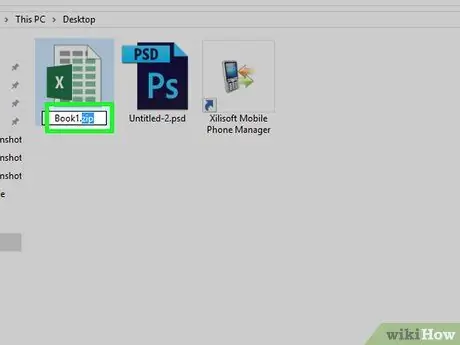
Step 5. Convert the Excel file into a ZIP folder
To change it:
- Windows - Right-click the Excel file, select “ Rename ”, delete the "xlsx" text at the end of the file name, and type zip. Make sure you insert a period between the file name and the "zip" extension. Press Enter key, then click “ Yes ' when prompted.
- Mac - Click the Excel file, select “ File ", click " Get Info ”, remove the "xlsx" extension at the end of the filename, and type zip. Make sure you insert a period between the file name and the "zip" extension. Press the Return key, then click “ Use.zip ' when prompted.
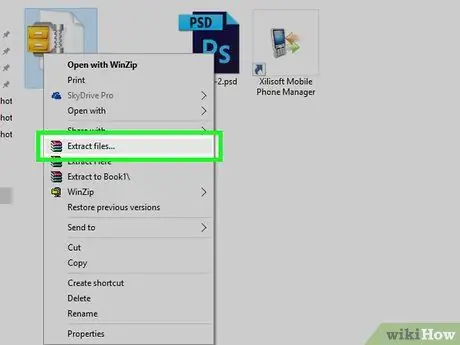
Step 6. Extract the ZIP folder
This process is slightly different, depending on the operating system of the computer you are using:
- Windows - Right-click the ZIP folder, click “ Extract All… ” on the drop-down menu, and click “ Extract ' when prompted. The extracted folder will be opened.
- Mac - Double-click the ZIP folder, then wait for the extracted folder to open.
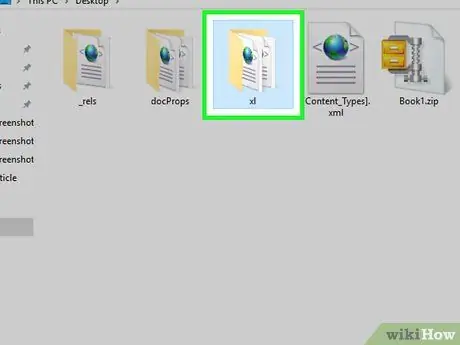
Step 7. Open the "xl" folder
Double-click this folder which is stored in the initial extracted folder.
If the extracted folder doesn't open for some reason, double-click the regular folder with the same name as the ZIP folder first
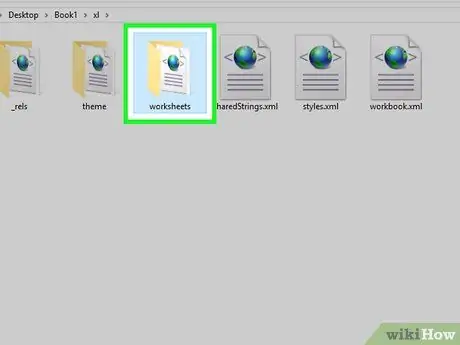
Step 8. Open the "worksheets" folder
This folder is at the top of the " xl " folder.
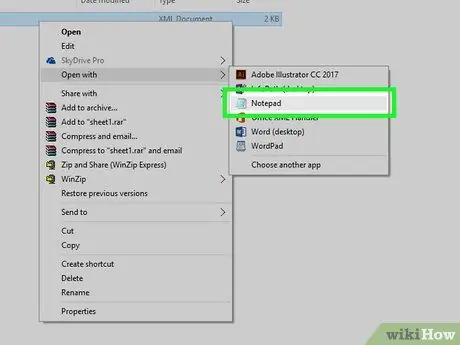
Step 9. Open the spreadsheet in a text-editing program
Follow one of the following steps depending on the operating system you are using:
- Windows - Right-click the worksheet you want to open (eg " Sheet1 "), select “ Open with ” from the drop-down menu, and click “ Notepad ” from the pop-out menu that appears.
- Mac - Click the sheet you want to open (eg " Sheet1 "), click “ File ", choose " Open With, and click " TextEdit ”.
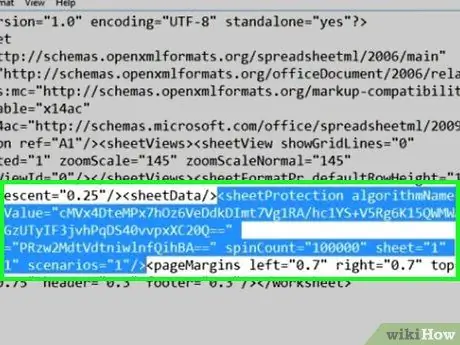
Step 10. Remove the password protection code
Look for the " sheetProtection " segment inside the brackets "", then remove any entries from "") at the end of the sheet protection algorithm.
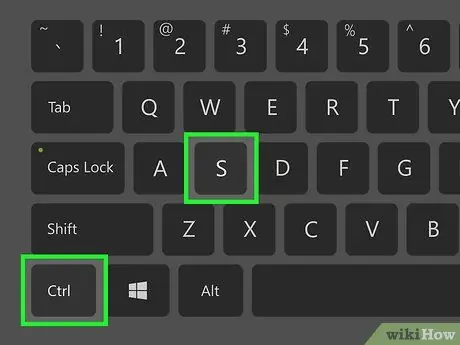
Step 11. Save changes and close the text editing program
Press Ctrl+S (Windows) or Command+S (Mac), then click the “ X ” (or the red circle on Mac computers) at the end of the program window.
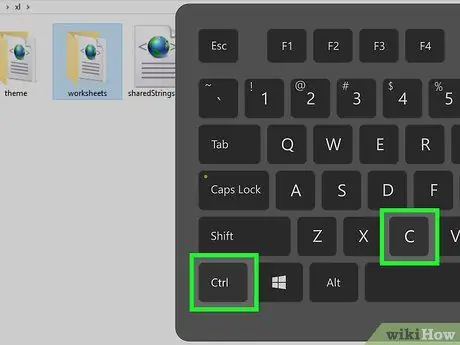
Step 12. Copy the "worksheets" folder
Click the " Back " button to return to the " xl " folder, then click the " worksheets " folder and press Ctrl+C (Windows) or Command+C (Mac).
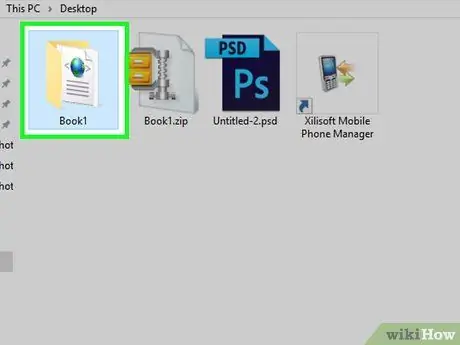
Step 13. Open the ZIP folder
Double-click the ZIP folder that was previously created.
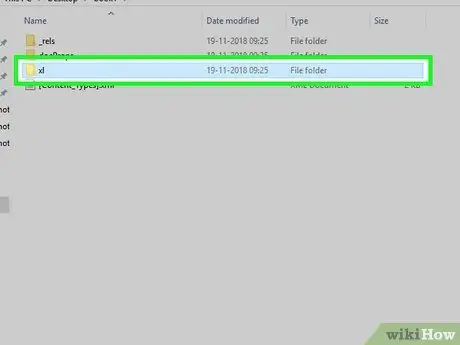
Step 14. Replace the "worksheets" folder in the ZIP folder with the copied folder
Visit the "worksheets" folder location in the ZIP folder by double-clicking the "xl" folder, then delete the "worksheets" folder. Click an empty space in the currently open folder, then press Ctrl+V (Windows) or Command+V (Mac). The new "worksheets" folder that was previously copied will be pasted into the ZIP folder.
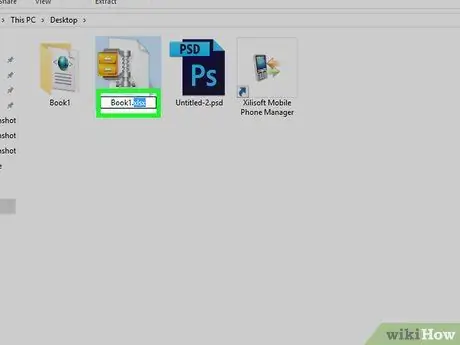
Step 15. Convert the ZIP folder back into an Excel file
Close the ZIP folder, and then follow one of these steps:
- Windows - Right-click the ZIP folder, click “ Rename ”, replace the "zip" text with the "xlsx" extension, and press Enter. Click " Yes ' when prompted.
- Mac - Click the ZIP folder, click “ File ", choose " Get Info ”, replace the "zip" text in the file title with the "xlsx" extension, and press Return. Click " Use.xlsx ' when prompted.
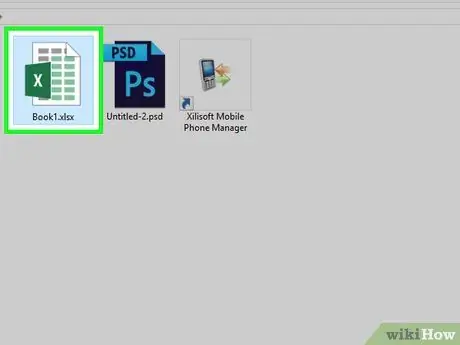
Step 16. Open an Excel spreadsheet
Double-click the Excel spreadsheet, then edit as needed.
If you receive an error message that the Excel spreadsheet is corrupted, it is possible that you removed additional code when trying to remove the password protection algorithm. Repeat the steps above and make sure you only remove the text or entries inside the brackets (), and the brackets themselves
Method 2 of 2: Hacking Excel File Password
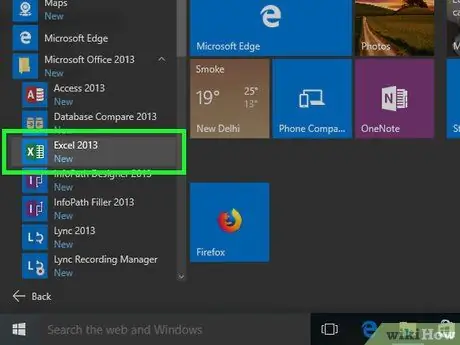
Step 1. Understand that maybe you can't hack passwords
Modern versions of Excel, such as Excel 2013 and 2016 use more advanced encryption techniques. This means that the brute-force methods that most password hackers use are useless due to the length of time it takes to crack the password (from a few weeks to several years, depending on the strength of the password).
You can't hack Excel files without purchasing a password-cracking program, as free versions of trusted password-cracking programs usually only include (maximum) Excel 2010
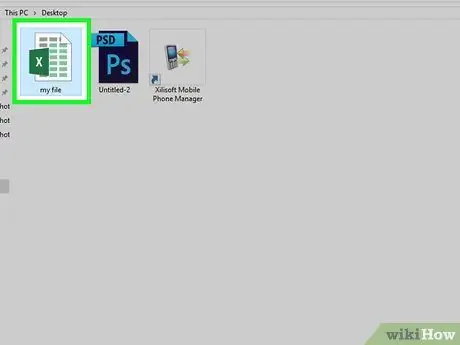
Step 2. Make sure the Excel file is indeed protected
If the file is truly encrypted, you'll be prompted for your password after double-clicking the file before you can view its contents.
If the spreadsheet appears immediately when the file is double-clicked, your Excel file may only have editing protection. In such a situation, you can use the previous method to unlock the file
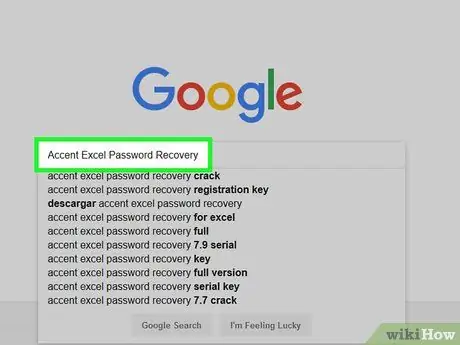
Step 3. Purchase an Excel password cracker program
Since passwords cannot be removed from the file, you will need to use a paid program to find the password in order to enter it.
- Passware Excel Key is the only trusted password cracking program covering various versions of Excel up to 2016.
- Accent Excel Password Recovery and Rixler Excel Password Recovery Master are other options to try, but they only cover versions of Excel up to version 2013.
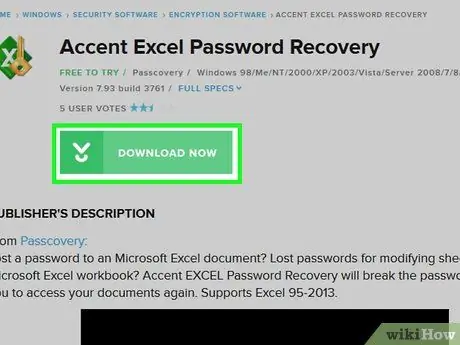
Step 4. Install and open the hacker program
This process will depend on your program and your computer's operating system, but you'll usually need to download an installation file, double-click the file, follow the on-screen instructions, and open the program when it's finished installing.
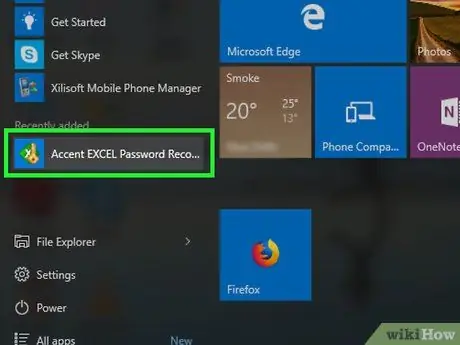
Step 5. Select the Excel file
Use the hacker program interface to locate the Excel file, click on the file to select it, and select “ Open " or " Choose ”.
Again, this step is slightly different, depending on the selected program. For example, if you are using Passware Excel Key, you need to click the “ Remove a password ” before being able to select the file.
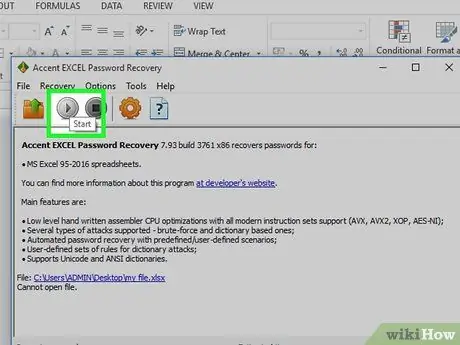
Step 6. Run the hacker
If necessary, click the button “ Start " or " Run ” at the bottom of the hacker window to start the process of hacking the Excel file password.
You may have the option of specifying a specific form of "attack" (eg brute-force) in the program window
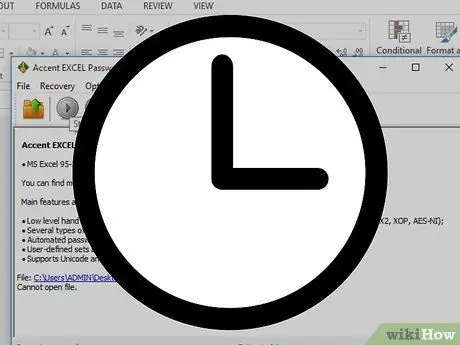
Step 7. Wait for the results to be displayed
Unfortunately, brute-force attacks can take from several hours to several months before successfully cracking the file password. It might be a good idea to stop the experiment if you can't find the password within a day or so, depending on the contents of the existing Excel file.
If the program manages to find a suitable password, it will be displayed in a pop-up window. You can enter this password in the prompt that is displayed when you open the Excel file
Warning
- You generally cannot hack passwords on encrypted Excel files.
- Microsoft cannot recover lost or forgotten Excel file passwords.






